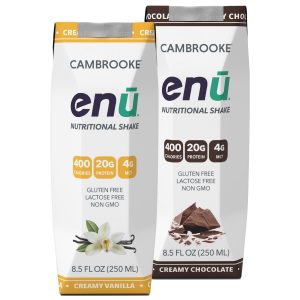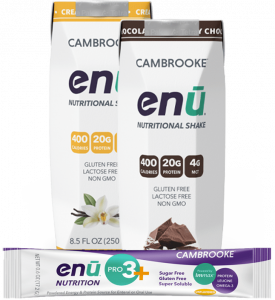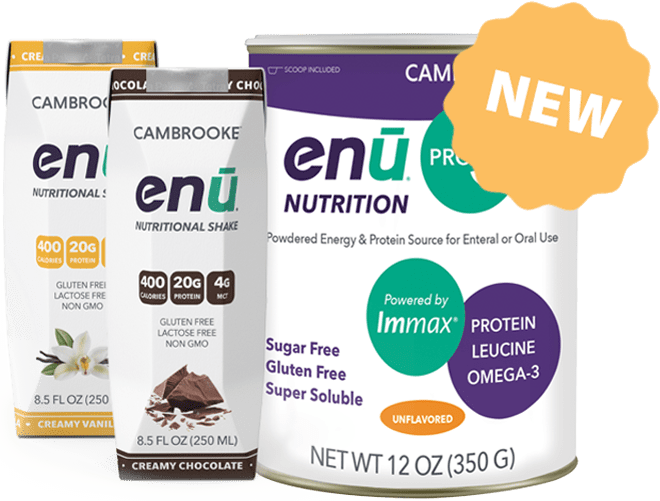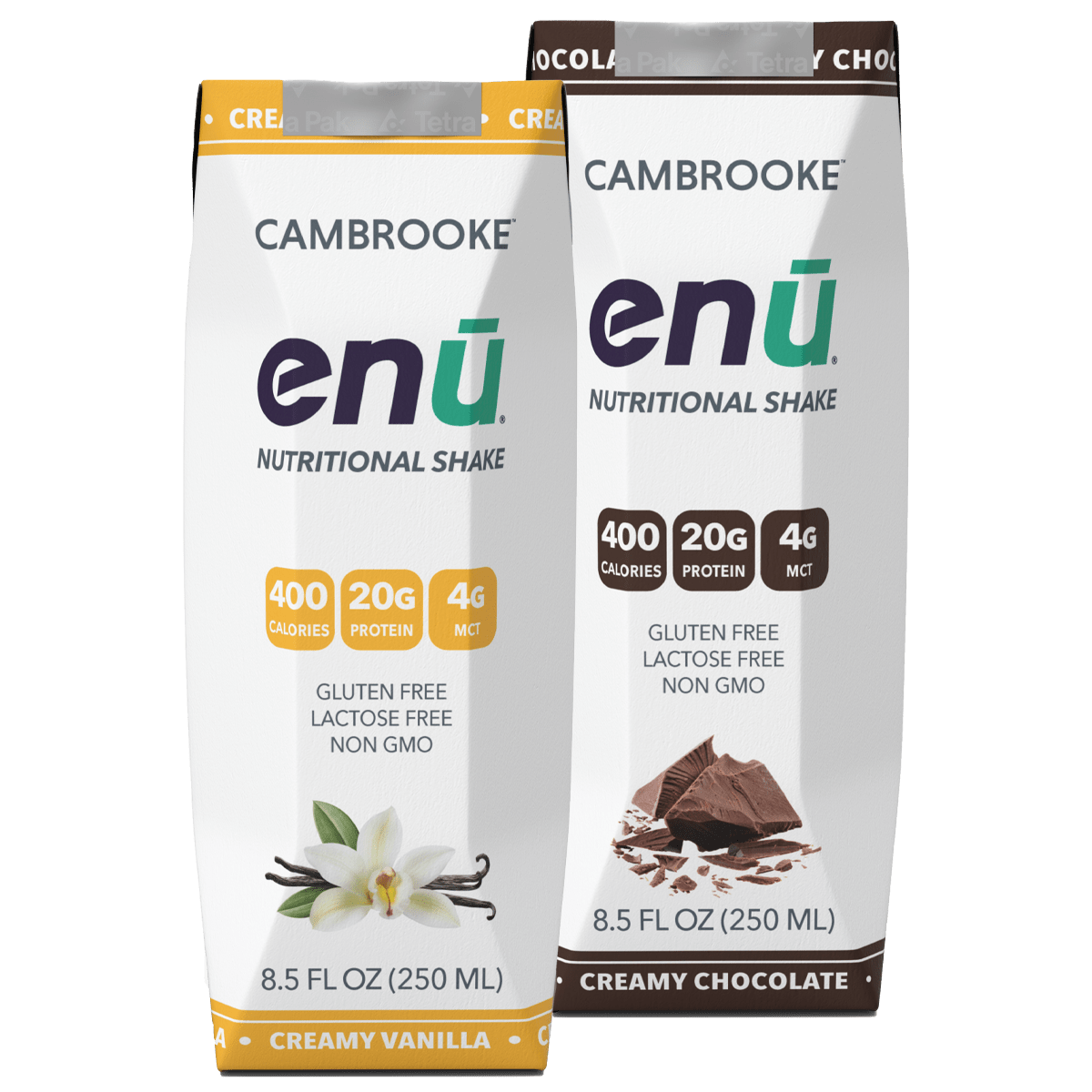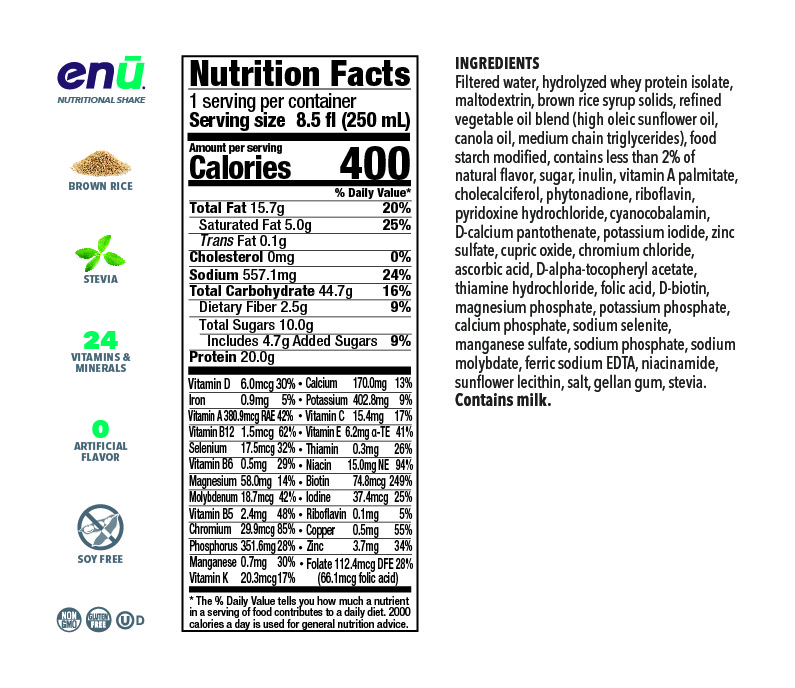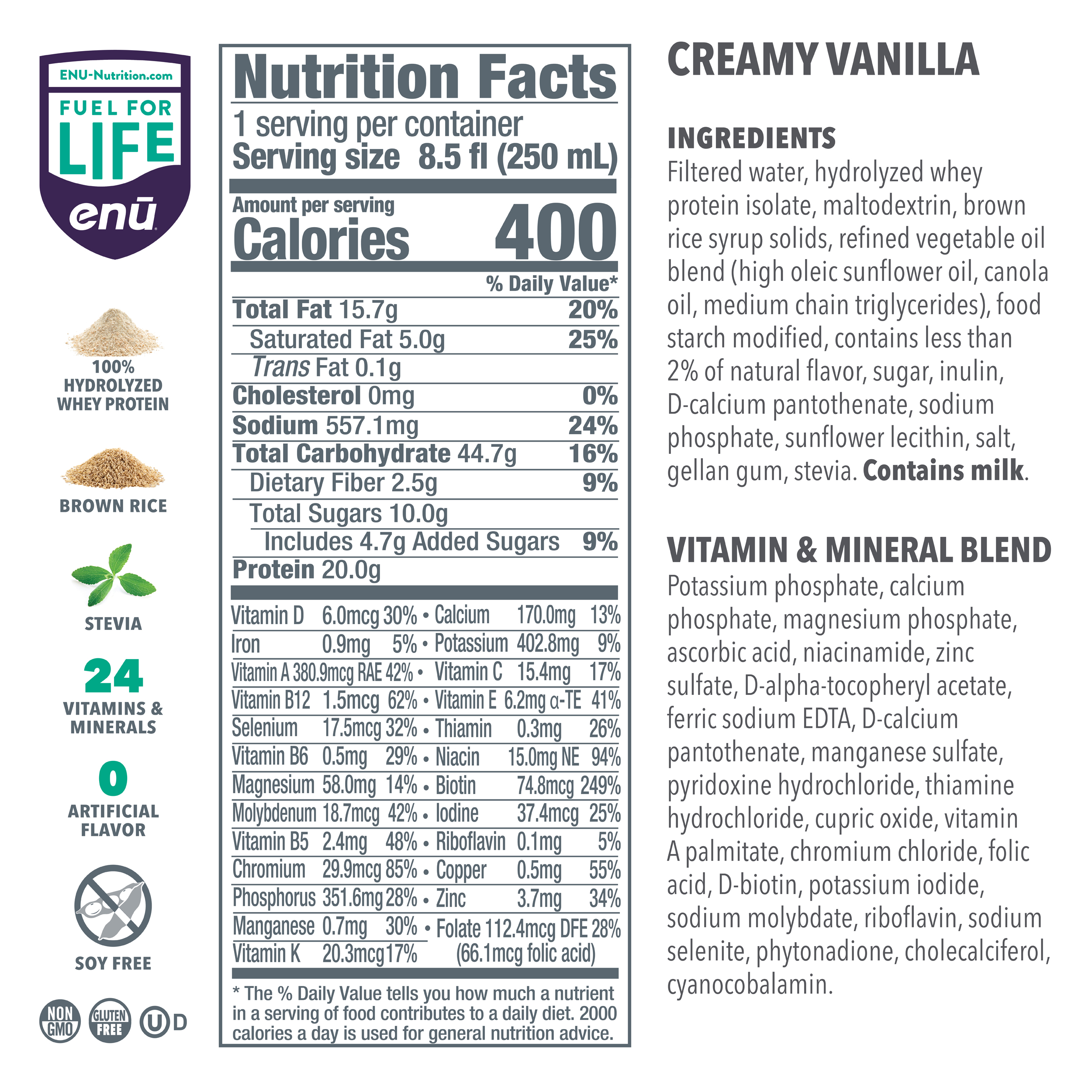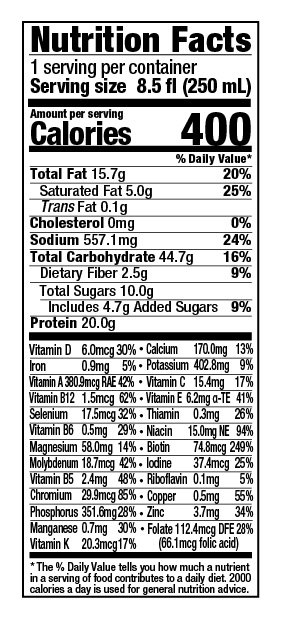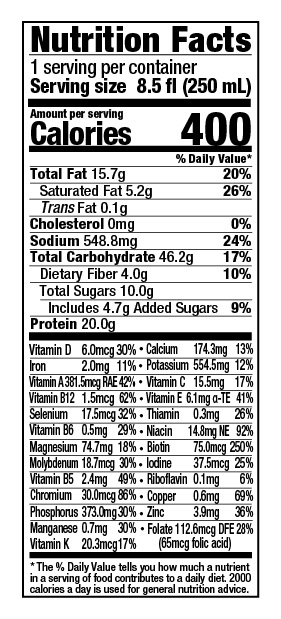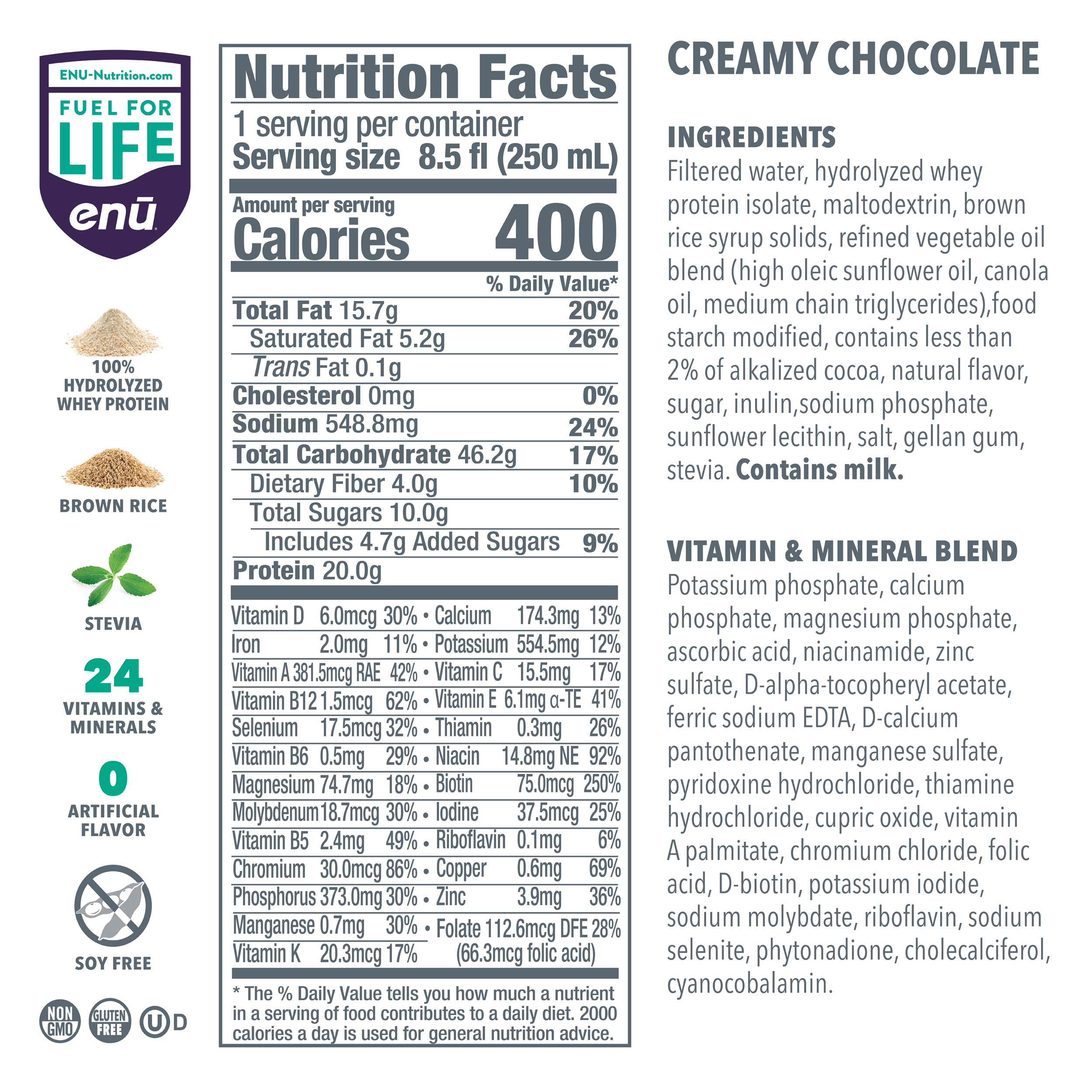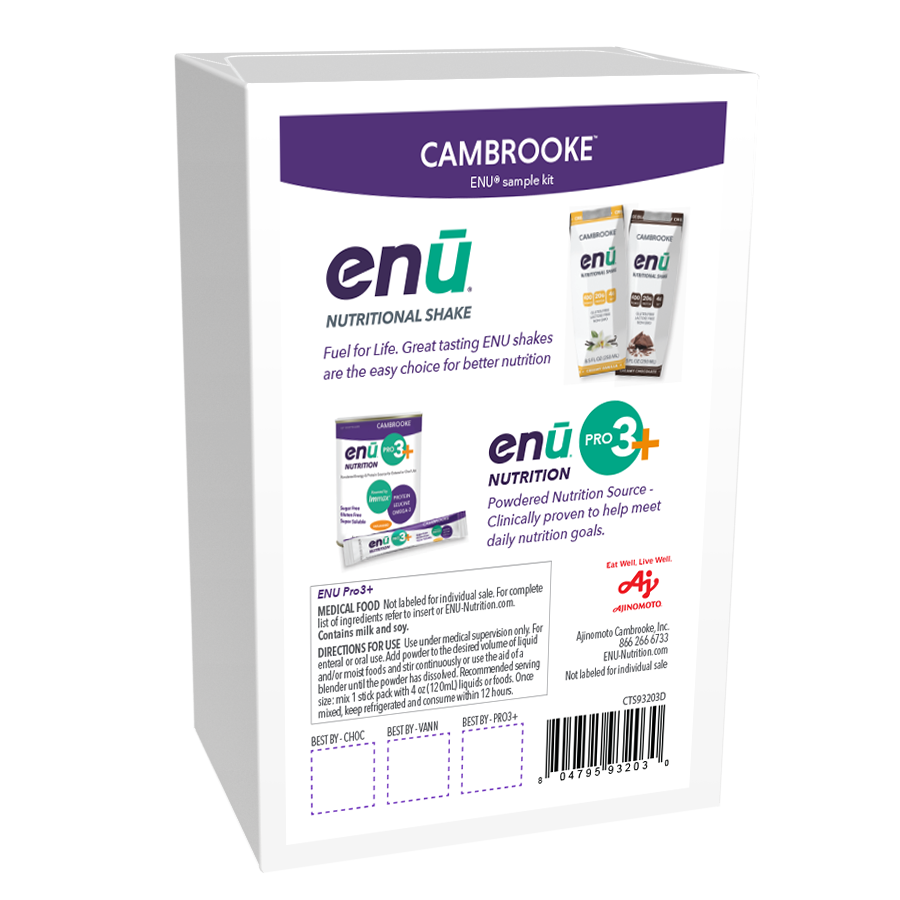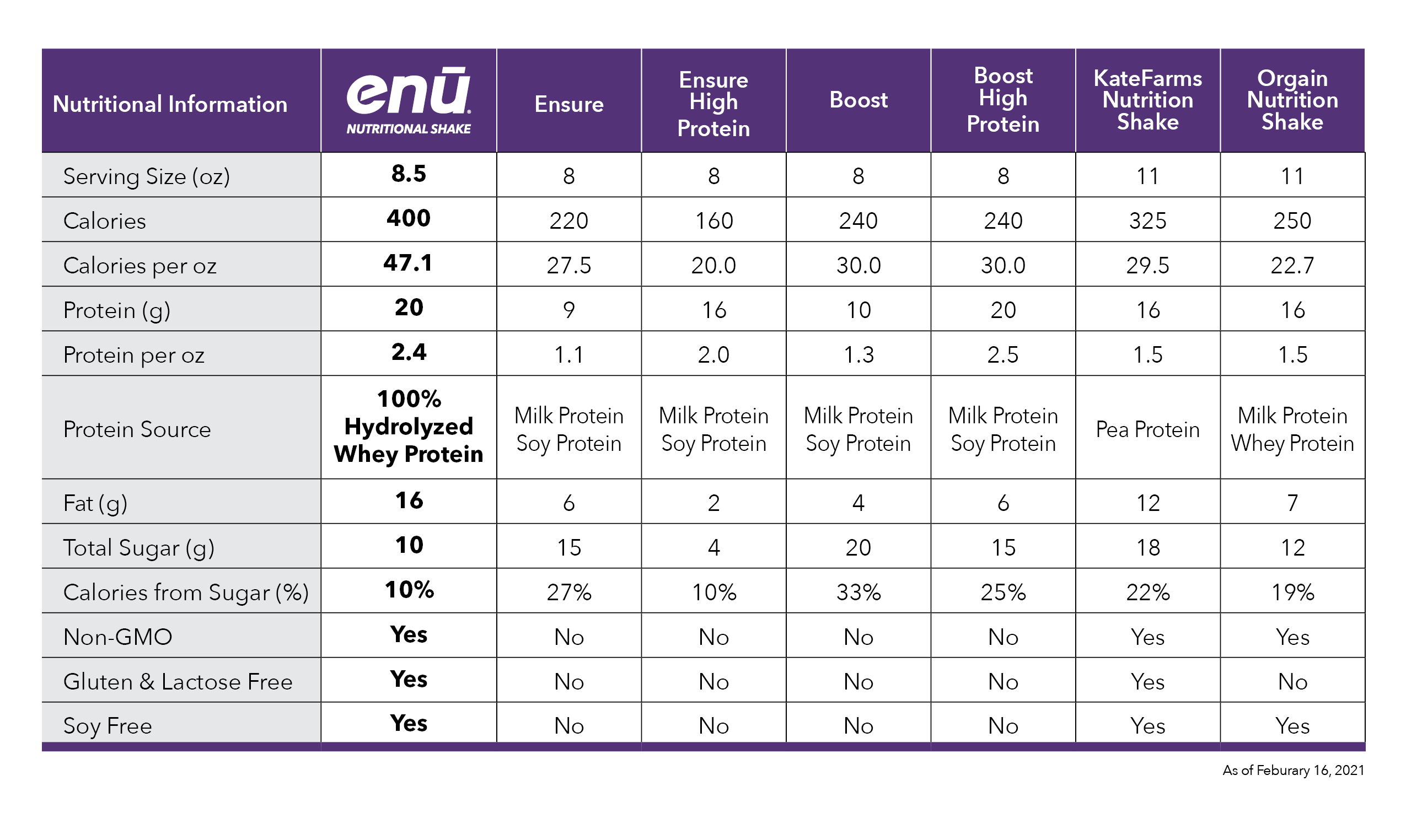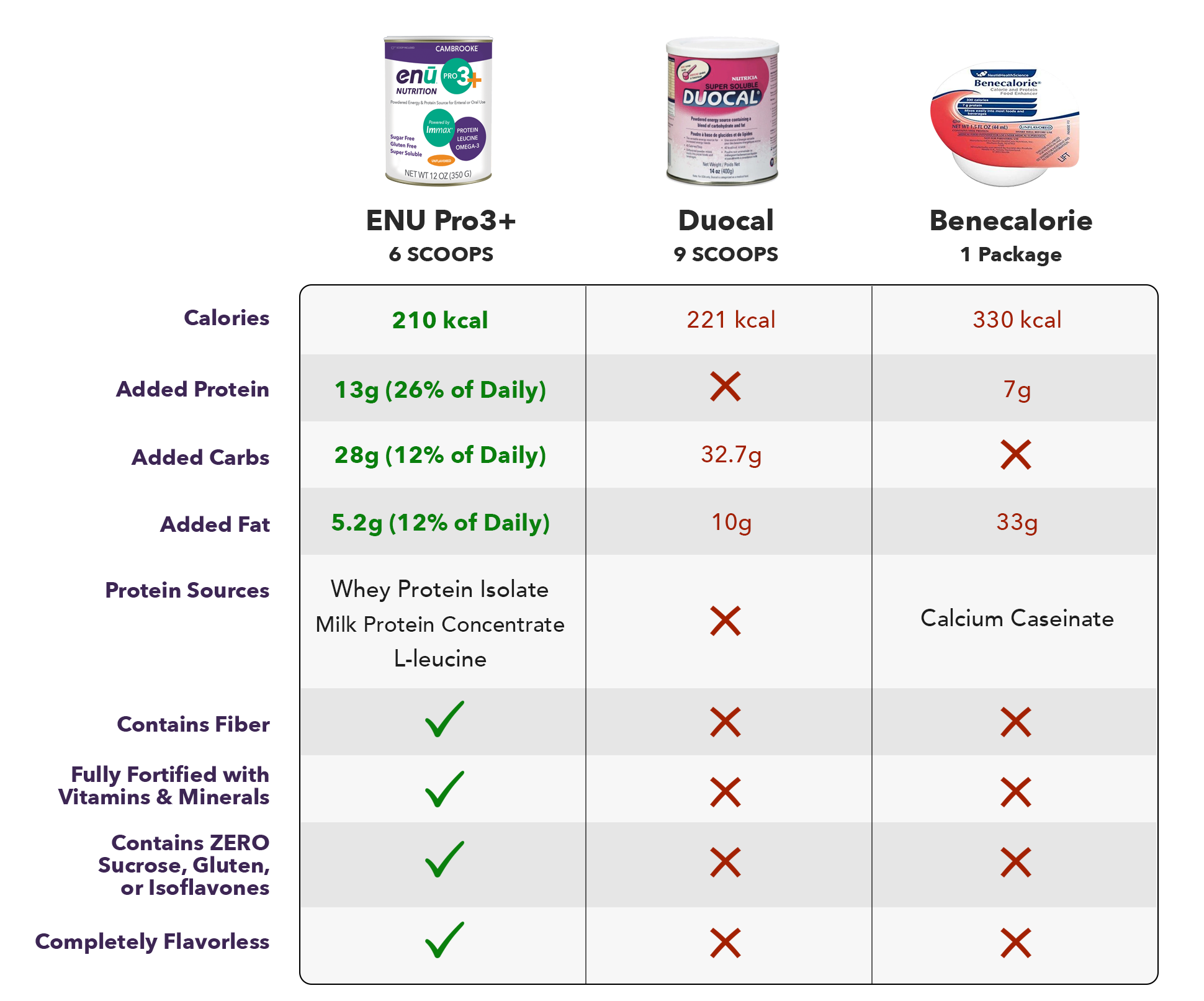
Get a FREE
ENU Intro Pack*
*Just Pay $2.00 Shipping
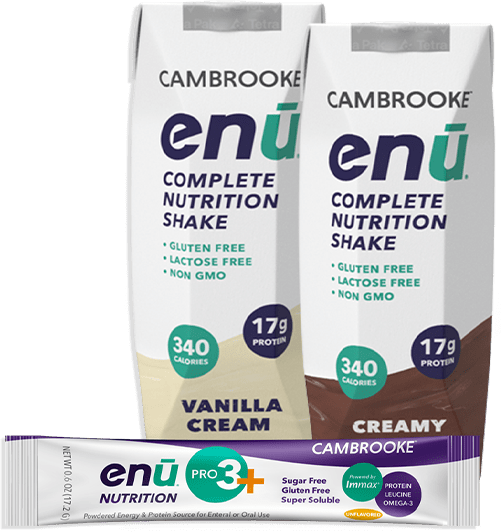
5 Reasons to Avoid Corn Syrup in Meal Replacement Shakes
Although it was once ubiquitous in American foods, corn syrup and its evil twin, high-fructose corn syrup, are now used less frequently by food manufacturers. Recent ad campaigns by companies like Anheuser-Busch have sought to call out the use of corn syrup in competitors’ products, and for good reason: consumers are becoming more and more aware of the dangers posed by this added sweetener and have been increasingly reluctant to buy products that contain it.
As media organizations have increased their coverage of corn syrup and its attendant health risks, companies have begun switching to alternatives; in many cases, they simply begin using sugar or artificial sweeteners, though these ingredients each have their own drawbacks as well. Keep reading to learn more about corn syrup, the effects it can have on your body, and more nutritional ingredients to replace it with.
What is Corn Syrup vs. High-Fructose Corn Syrup?
Corn syrup is a sweetener derived from the starch found in corn. In its basic state, it is 100 percent glucose, meaning that it is essentially liquid sugar. It generally comes in two forms: light corn syrup is seasoned with vanilla and salt and has a medium level of sweetness; dark corn syrup is corn syrup mixed with molasses and is consequently much sweeter and darker in color.
The often-vilified high-fructose corn syrup is a further processed form of sweetener in which a significant portion of the corn syrup’s original glucose is converted into fructose. The result is a very sweet liquid with similar properties to table sugar: it’s high in calories, low in nutrients, and generally bad for your health. However, high-fructose corn syrup is much cheaper than sugar, and it is easier to handle during the manufacturing process, which is why it is so often used in processed foods today.
Reasons to Avoid High-Fructose Corn Syrup
Like all added sweeteners, corn syrup – in any form – will have negative impacts on your health, which makes it a particularly unattractive addition to meal replacement shakes, and to food in general. Here are five reasons why you should avoid corn syrup in your diet.
1. Factor in Weight Gain
Because corn syrup is first and foremost a form of sugar, its consumption is a factor in weight gain. Fructose is notorious for increasing hunger even as it boosts the number of calories you’re taking in – not a helpful combination if you’re trying to lose weight. It also is easily converted into fat by the body because it is processed by the liver, which is not equipped to handle a large influx of the compound and will shunt any excess fat it produces to other parts of the body.
2. Increased Risk of Heart Disease
Another well-established consequence of a sugar-heavy diet is an increased prevalence of heart disease. One 2014 study that looked at more than 30,000 people found that those who received 17 to 21 percent of their calories from added sugars had a 38 percent greater chance of dying from heart disease compared to people who only got 8 percent of their calories from sugars
Another study published by the Journal of the American Medical Associated found that the risk of dying of heart disease doubled for those who took in 25 percent of their calories from added sugars. In a world where these sweeteners find their way into almost everything we eat and drink, avoiding them where possible can help you keep your intake at a healthy level.
3. Reduced Energy Levels
Most people understandably equate sugar consumption with a boost in energy; equally familiar is the crash that inevitably follows the energy spike. This is where the term “sugar high” comes from: sugars and refined carbs – such as corn syrup – are rapidly digested and cause a quick elevation of your blood sugar, making you feel like you have an inexhaustible supply of energy. Like a flash fire, your body uses up this fuel pretty much all at once, leaving you feeling exhausted. To avoid this, try reaching for a balance of natural protein, fats, and carbs to give you sustained energy throughout your day.
4. Recent Links to Cancer
A study conducted at Baylor University’s College of Medicine and released in March 2019 showed a possible link between the sweetener and cancer growth. In the study, mice with intestinal tumors who consumed a modest daily amount of high-fructose corn syrup – the rough equivalent of drinking about 12 ounces, or one bottle, of soda per day – exhibited an accelerated growth rate in those tumors.
5. Increased Risk of Diabetes
As with heart disease, diabetes has emerged as a primary concern for people who maintain diets high in corn syrup and other sweeteners. Consuming fructose, like the kind found in high-fructose corn syrup and table sugar, can lead to a condition called insulin resistance in which your body’s cells stop responding properly to insulin. This is often the first step toward type 2 diabetes, which is characterized by excessive levels of blood sugar. Reducing sugar intake, exercising, and eating healthier can reduce the danger of developing insulin resistance.
Try ENU Meal Replacement Shakes, Containing Natural Sweetener Alternatives
It has become increasingly apparent in recent years that corn syrup is bad for you, regardless of what form it comes in. In fact, consuming any added sweeteners, even in modest amounts, has been linked to a number of harmful health effects. ENU meal replacement shakes use stevia leaf, a natural, no-calorie alternative to corn syrup, to create meal replacement shakes that are as delicious as they are healthy. To learn more about ENU products, visit us online today.
